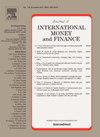气候变化不确定性与企业债务关系:分位数面板数据分析
IF 2.8
2区 经济学
Q2 BUSINESS, FINANCE
引用次数: 0
摘要
气候变化行动与企业债务市场之间是否存在联系?气候问题正影响着越来越多的企业、其资本需求和负债情况,因为企业面临的生态转型和气候变化风险会影响其资本成本、资本需求,进而影响其企业债务决策。本研究探讨了气候变化风险/不确定性对企业债务的影响,并进一步检验了领先-滞后效应。为此,我们使用了 1990-2024 年期间 S&P500 指数中美国上市公司的相关数据,重点关注与气候变化相关的不同事件、危机和紧张局势的时间轴上的大量样本。因此,我们使用线性和非线性规格定义了美国公司债务与气候变化不确定性之间的关系。我们的研究结果表明,与生态转型和气候变化风险相关的压力对美国公司的债务及其资本结构产生了重大影响。然而,气候风险的影响似乎因所考虑的量级而异,因此也因公司债务水平而异,这进一步证明了非对称性和非线性。本文章由计算机程序翻译,如有差异,请以英文原文为准。
Climate change uncertainty and corporate debt relationship: A quantile panel data analysis
Is there a link between climate change action and the corporate debt market? Climate concerns are affecting a growing number of firms, their capital demand and indebtedness, as their exposure to ecological transition and climate change risk can influence their capital cost, capital demand and therefore their corporate debt decisions. This study examines the impact of climate change risk/unertainty on corporate debt and tests further lead-lag effects. To this end, we rely on data related to US companies listed on the S&P500 over the period 1990–2024, focusing on a large sample over a timeline characterized by different episodes, crises, and tensions related to climate change. Accordingly, we define the relationship between US corporate debt and climate change uncertainty using linear and nonlinear specifications. Our results show that pressure linked to ecological transition and climate change risk has had a significant impact on US firms’ debt and their capital structure. However, it appears that the impact of climate risks varies depending on the quantile under consideration and therefore the level of firm’s debt, suggesting further evidence of asymmetry and nonlinearity.
求助全文
通过发布文献求助,成功后即可免费获取论文全文。
去求助
来源期刊

Journal of International Money and Finance
BUSINESS, FINANCE-
CiteScore
4.20
自引率
4.00%
发文量
141
期刊介绍:
Since its launch in 1982, Journal of International Money and Finance has built up a solid reputation as a high quality scholarly journal devoted to theoretical and empirical research in the fields of international monetary economics, international finance, and the rapidly developing overlap area between the two. Researchers in these areas, and financial market professionals too, pay attention to the articles that the journal publishes. Authors published in the journal are in the forefront of scholarly research on exchange rate behaviour, foreign exchange options, international capital markets, international monetary and fiscal policy, international transmission and related questions.
 求助内容:
求助内容: 应助结果提醒方式:
应助结果提醒方式:


